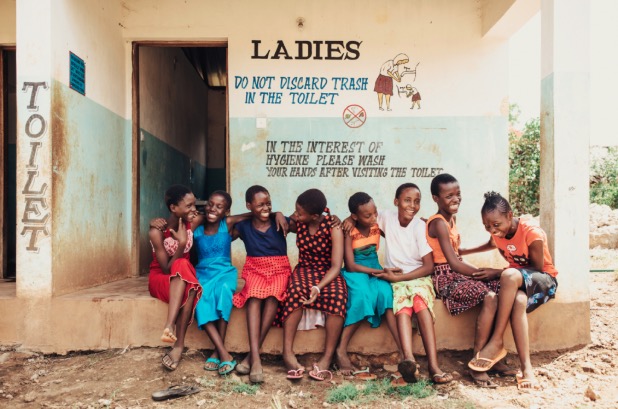By Kelsey Terschak
Most of us expect our bathroom break to consist of a white porcelain throne. A comfortable place to (let’s be honest) scroll through the latest news or play a quick game of Solitaire while we answer nature’s call, right? But billions of people around the world experience that call in a very different way than we do in the States.
According to the World Toilet Organization, one BILLION people around the world still practice open defecation. That’s 15% of the world population! It’s awkward to discuss, but in low- and middle-income countries, toilets aren’t taboo – they are a luxury. Today, billions of people across the globe will respond to nature’s call in a field, forest, or dangerously unsanitary facility.
Compassion International, an organization dedicated to releasing children from poverty in Jesus’ name, works in 25 countries worldwide to provide opportunity for those living in poverty. And that includes…you said it…the opportunity to pee in peace! Check out these five unique bathroom facilities Compassion established in the areas they serve. Does it look like your daily visit to the loo?
Let’s take a look at what going to the bathroom involves around the globe.
Bolivia
Outdoor defecation is a common practice in the less affluent areas of Bolivia. A lack of water or proper sanitation in houses and schools head to a lack of hygiene habits.
Thanks to generous donor support, these church-built bathrooms with toilets, sinks, urinals, and showers for boys and girls. Initially, the staff struggled because the children had never used a restroom and didn’t know how to use a toilet.
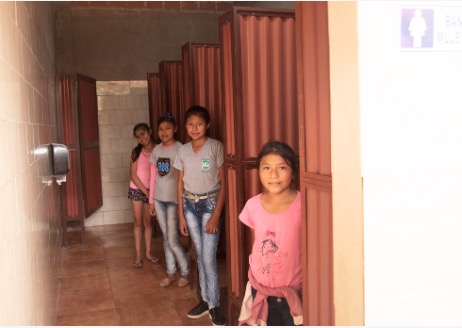
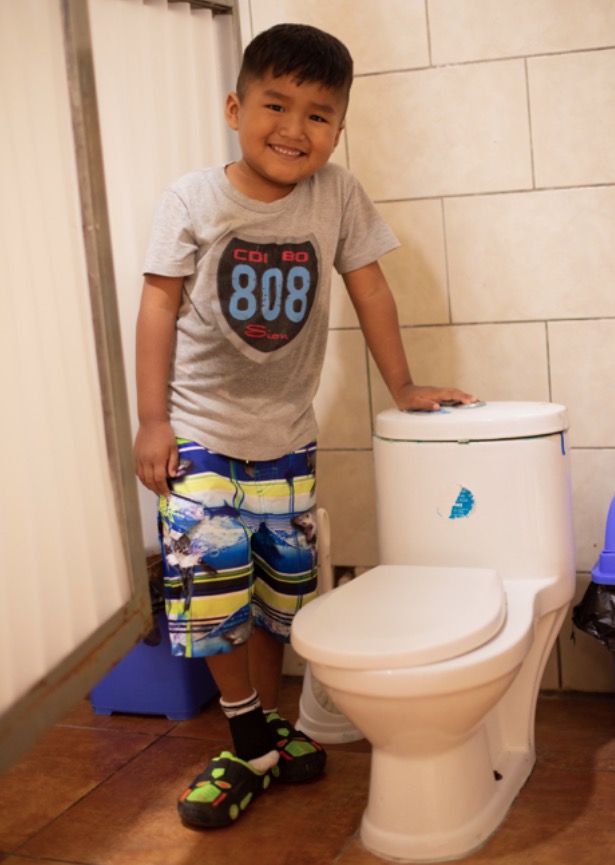
With patience and dedication, the children were taught how to properly use the bathrooms, as well as the importance of washing their hands, taking showers and practicing healthy habits.
Colombia
5.6 million Columbian people still do not have access to proper sanitation, but Jhonefer is lucky enough to have a toilet installed in his very home! Before the toilet was added, Jhonefer and his five cousins relieved themselves in an abandoned plot in front of their home, which exposed them to abuse and robbery.
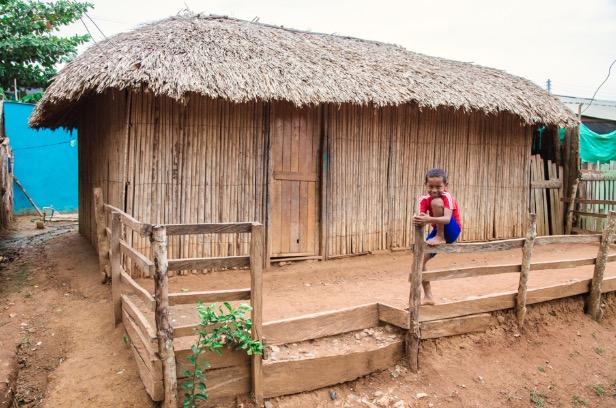
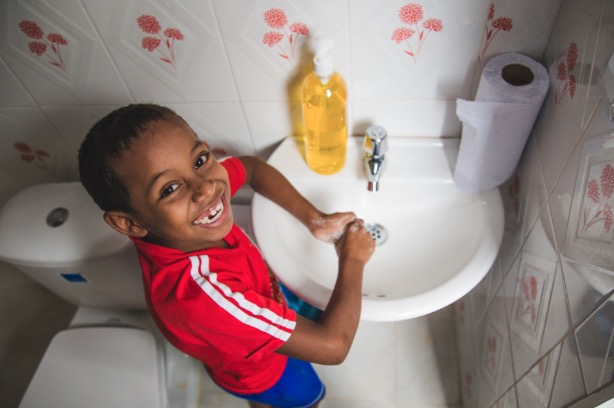
Despite the poverty in this area, something else now calls the attention of those visiting the community. These new bathrooms represent protection, safety, and dignity for families.
Indonesia
People living in the Tolombukan village of Indonesia didn’t think they needed a toilet – they had a river! Even if a toilet were wanted, it would cost more than double a low monthly income to build. Fortunately, toilet facilities were built at the local church, and many will walk over a mile each way to use the restroom.
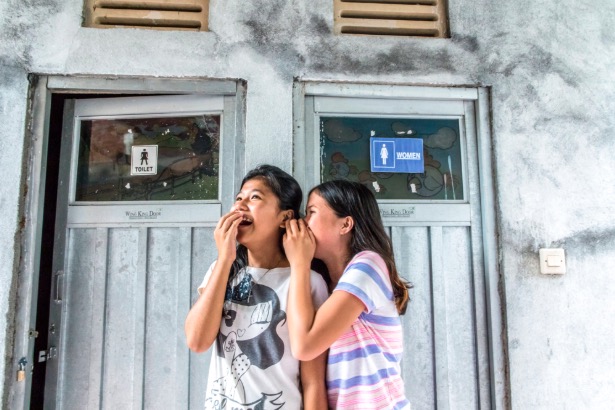
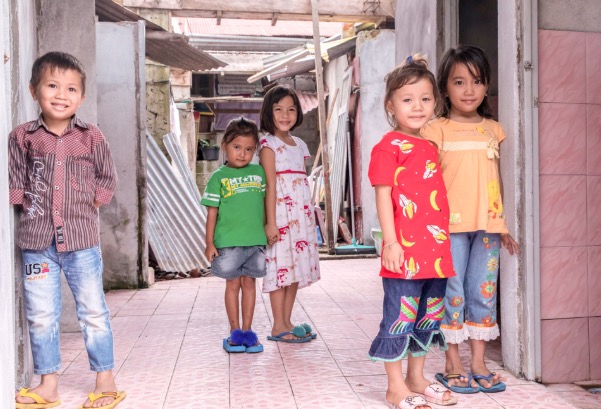
In 2015, the local government in southeast Minahasa, Indonesia built latrines for people living near the beach. Unfortunately, the buildings were destroyed by tides and big waves, which forced the locals who have no access to toilets, including 105 children from the local Compassion program, to defecate at the beach.
One child living in the village shared, “I don’t feel comfortable [relieving myself on] the beach because people can see me during the activity. The other thing I don’t like is the wind making…my pants damp.”
Thankfully, due to the generosity of Compassion donors, four toilets were built at the local church, which allows tutors to teach children about proper sanitation.
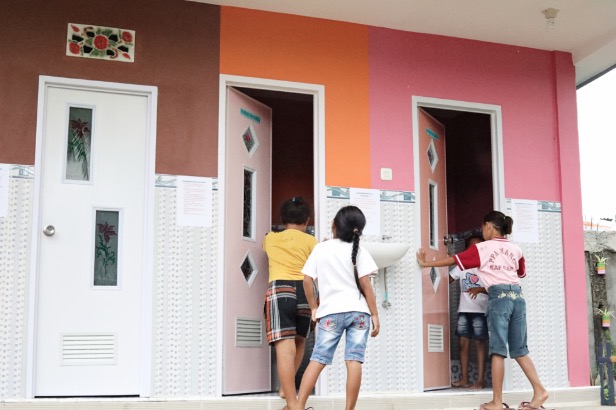
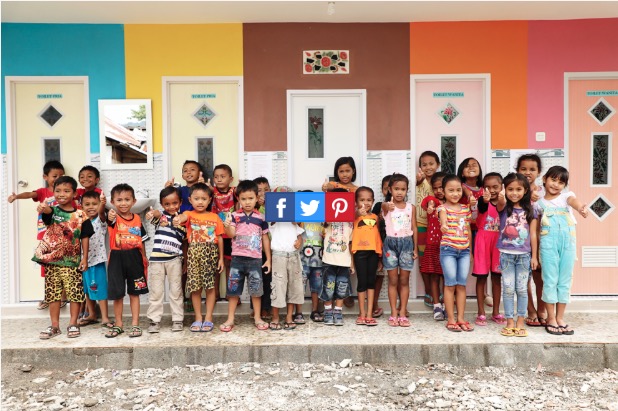
The Philippines
11-year-old Karen Buison used to run behind tall sugarcane plants to relieve herself because they did not have a toilet. This is common practice for the hundreds of other Filipino families living in sugarcane plantations. For generations, these people have tilled the lands without private toilets and sewage systems.
“It was really demeaning, very uncomfortable and quite scary,” said Romelyn Filio, older sister of Rodel Filio, 11 years old, a beneficiary. “At nights when I needed to go, I had to wake my mother or my sisters up to go with me into the field just to relieve myself. I wouldn’t dare go there alone.”
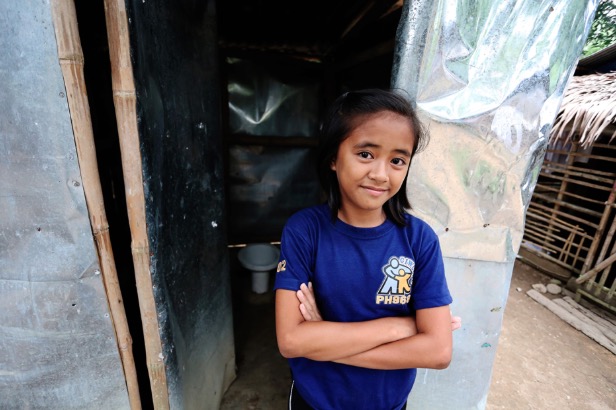
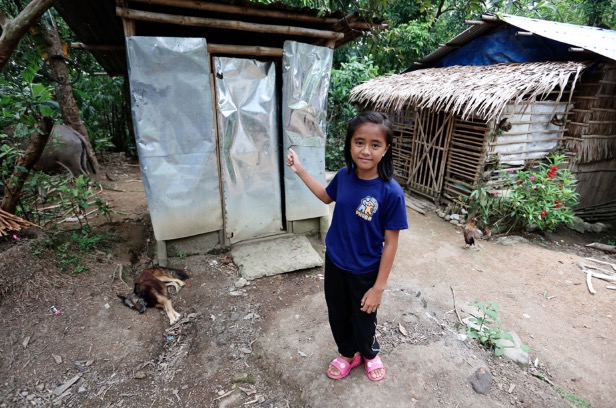
Thanks to the generosity of donors like you, Karen and 35 other children in her province now have a private toilet, where they can relieve themselves with their dignity intact.
1,000 children die EVERY DAY from diarrheal diseases due to poor sanitation. These deaths are preventable, and you may have the resources to help. Will you consider a donation to Compassion International’s WaSH fund so that others around the world can safely respond to nature’s call?
Kelsey Terschak is a child advocate and digital marketing specialist at Compassion International, an organization dedicated to eradicating childhood poverty around the world. Follow at @compassion.


